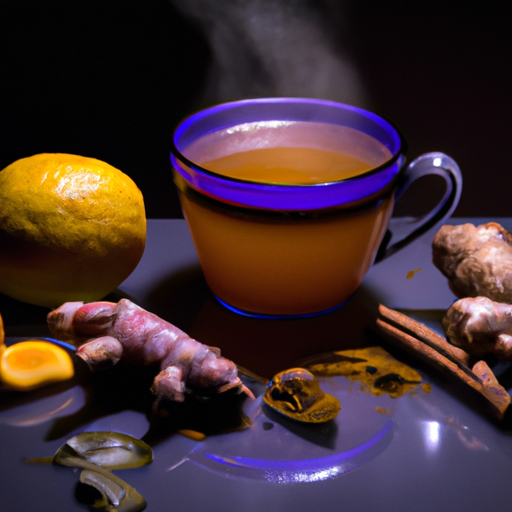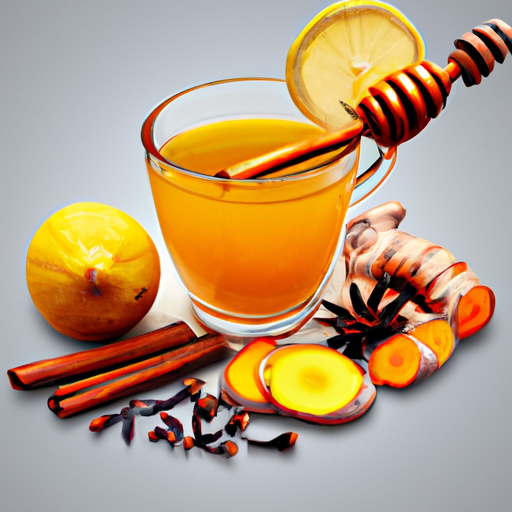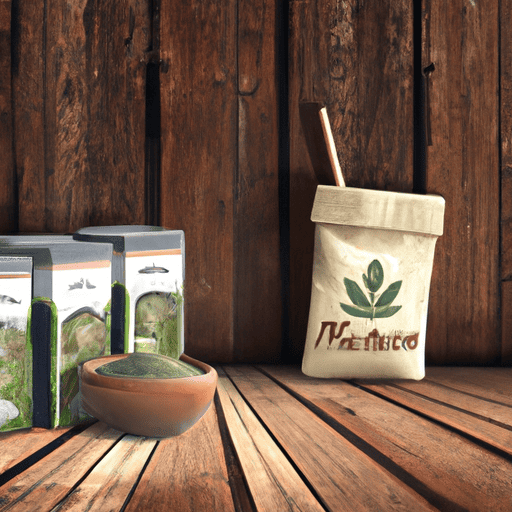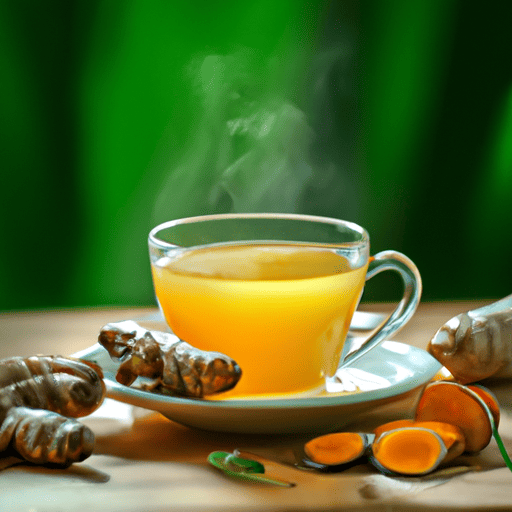Ashwagandha
Why Does Ashwagandha Come from India?

Ever wondered where ashwagandha comes from? Well, we’ve got the answer for you!
Ashwagandha, a powerful herb known for its numerous health benefits, originates from the ancient lands of India. This miracle plant has been a staple in Ayurvedic medicine for centuries, providing relief for a wide range of ailments.
With its natural habitat nestled in the dry regions of India and parts of Africa, ashwagandha is cultivated and harvested using traditional practices.
Join us as we explore the fascinating journey of this incredible herb.

Key Takeaways
- Ashwagandha originates from ancient India and belongs to the Solanaceae family.
- It has been used in Ayurvedic medicine for centuries and is considered a powerful herb.
- Ashwagandha is believed to promote vitality, boost the immune system, and improve cognitive function.
- It is also known as an adaptogen, helping the body cope with stress and promoting overall wellbeing.
The Ancient Origins of Ashwagandha
The ancient origins of Ashwagandha can be traced back thousands of years to the traditional medicine practices of India. This herb, scientifically known as Withania somnifera, has a rich evolutionary history and holds significant cultural significance in the Indian subcontinent.
Ashwagandha belongs to the Solanaceae family and is classified as a nightshade plant. It has been used for centuries in Ayurvedic medicine for its numerous health benefits. The name ‘Ashwagandha’ translates to ‘smell of a horse’ in Sanskrit, which refers to its strong odor and the belief that consuming it can impart the strength and vitality of a horse.
Its use is deeply rooted in Indian culture, where it’s regarded as a Rasayana or rejuvenating herb. Ashwagandha’s long history and cultural significance make it a valuable herb in serving the well-being of individuals.
Ashwagandha in Ayurvedic Medicine
We use Ashwagandha in Ayurvedic medicine for its numerous health benefits. Ayurveda, an ancient Indian holistic healing system, considers Ashwagandha to be a powerful herb with a wide range of therapeutic properties. It’s believed to promote vitality, boost the immune system, reduce stress, and support overall well-being.

Ashwagandha has been extensively researched in recent years, providing scientific evidence for its ayurvedic benefits. Studies have shown that it possesses adaptogenic properties, helping the body to adapt and cope with stressors. It also exhibits anti-inflammatory, antioxidant, and immune-modulating effects. Furthermore, Ashwagandha has been found to improve cognitive function, enhance energy levels, and promote healthy aging.
With its long history of traditional use and growing body of scientific research, Ashwagandha continues to be a valuable herb in Ayurvedic medicine.
Ashwagandha’s Natural Habitat and Growth
As we delve into the topic of Ashwagandha’s natural habitat and growth, it’s important to understand its environmental requirements and how it thrives in specific regions.
Ashwagandha, also known as Withania somnifera, is a hardy plant that can adapt to various climates and terrains. It’s native to the dry regions of India, but it can also be found in parts of Africa and the Middle East. This versatile herb prefers well-drained sandy soil and requires full sun exposure for optimal growth. It’s known for its ability to withstand drought and extreme temperatures, making it a resilient plant.

Ashwagandha’s benefits for stress relief and its potential as a natural remedy for anxiety have made it a popular choice among those seeking natural alternatives for their well-being. Understanding its natural habitat and growth conditions is essential for traditional cultivation and harvesting practices.
Traditional Cultivation and Harvesting Practices
To cultivate and harvest Ashwagandha, farmers follow a specific set of traditional practices. These techniques have been passed down through generations and are deeply rooted in the knowledge of the plant’s medicinal properties.
Traditional farming techniques are employed to ensure the optimal growth and yield of Ashwagandha plants. Farmers carefully select the best quality seeds and prepare the soil by adding organic matter and nutrients. Ashwagandha plants are typically sown in well-prepared beds and require regular watering and weeding.
Harvesting is done when the plants reach maturity, usually after four to five months. The roots are carefully dug out, cleaned, and dried in the shade to preserve their medicinal potency.

These traditional cultivation and harvesting practices contribute to the high quality and efficacy of Ashwagandha as a natural remedy.
Global Distribution and Commercial Production
Ashwagandha is grown and commercially produced in various regions worldwide. Due to its increasing popularity and demand for its medicinal properties, there’s been a significant growth in the global trade of this herb.
India is the largest producer and exporter of ashwagandha, followed by countries like Nepal, China, and Yemen. These regions provide favorable climatic conditions and suitable soil for its cultivation. In recent years, there’s been a rise in commercial production of ashwagandha in countries such as the United States, Australia, and Germany.
The expansion of commercial production has helped meet the growing demand for ashwagandha products, including supplements, powders, and extracts. This global distribution and commercial production have made ashwagandha readily available for those seeking its medicinal benefits.

Frequently Asked Questions
Are There Any Side Effects or Potential Risks Associated With Using Ashwagandha?
There can be potential side effects and risks associated with using ashwagandha. It’s important to consult with a healthcare professional before incorporating it into your routine to ensure it’s safe for you.
How Is Ashwagandha Typically Consumed or Used in Ayurvedic Medicine?
Ashwagandha is typically consumed in ayurvedic medicine through various forms such as capsules, powders, or liquid extracts. It is important to consult with a healthcare professional for recommended dosage and duration, as well as potential drug interactions.
Can Ashwagandha Be Grown and Cultivated in Home Gardens?
Ashwagandha cultivation at home offers numerous benefits. It provides a convenient source of this medicinal herb, allowing us to have easy access to its therapeutic properties. Growing ashwagandha can be a rewarding and empowering experience.
Are There Any Specific Environmental Conditions Required for the Successful Growth of Ashwagandha?
Environmental requirements and growth conditions are crucial for successful ashwagandha growth. Adequate sunlight, well-drained soil, and warm temperatures are necessary. Additionally, providing regular water and avoiding extreme weather conditions will help ensure the plant thrives.

Is There Any Scientific Evidence Supporting the Claimed Health Benefits of Ashwagandha?
Scientific studies on ashwagandha’s health benefits have shown promising results, supporting its traditional uses. The validity of its claimed effects on stress reduction, immune system enhancement, and improved cognitive function is backed by research.
Conclusion
In conclusion, ashwagandha is a remarkable herb with ancient origins in Ayurvedic medicine. Its natural habitat and growth patterns have contributed to its traditional cultivation and harvesting practices. Today, it’s commercially produced and distributed globally.
This journey of ashwagandha’s origins and growth is akin to a seed planted in fertile soil, nurtured by the wisdom of ancient healers, and now flourishing in the modern world, offering its numerous health benefits to all who seek them.
Justin is a seasoned author, coffee and tea enthusiast, and an essential member of the Cappuccino Oracle team. With a keen appreciation for the complexities of coffee, coffee alternatives, and tea, Justin has dedicated his professional career to exploring these realms and sharing his insights with readers worldwide.
Justin’s immersion in the world of coffee, coffee alternatives, and tea began at a young age, kindling a passion that extended beyond mere consumption. This love for these beverages led him to combine his talent for writing with his devotion to coffee and tea, bringing him to Cappuccino Oracle as a dedicated author.
Ashwagandha
Safe Adaptogen Drinks for a Healthy Pregnancy Guide

Here’s the scoop, folks: Are adaptogen drinks safe for pregnancy? We’ve got the lowdown for you.
When it comes to expectant mothers, it’s crucial to consider the potential risks and benefits of these trendy beverages. While adaptogen drinks may offer perks, there could be concerns during pregnancy.
But fear not! We’ve got safe alternatives and a handy tip: consult with a healthcare professional for personalized guidance.
Get ready to sip smart and make informed choices for you and your little one.

Key Takeaways
- Limited research on adaptogens’ safety during pregnancy.
- Certain adaptogens like licorice root and ashwagandha may have adverse effects and should be avoided during pregnancy.
- Adaptogen drinks may support improved well-being and stress management during pregnancy.
- It is important to consult with a healthcare provider before using adaptogens or consuming adaptogen drinks during pregnancy.
Understanding Adaptogens and Pregnancy
Understanding the effects of adaptogens on pregnancy is crucial for making informed decisions about their safety during this important time. Adaptogens are known for their ability to help the body adapt to stress and maintain hormonal balance. While some studies suggest that adaptogens may have positive effects on hormonal balance, there’s limited research on their safety during pregnancy.
It’s important to note that each adaptogen may have different effects on pregnancy, and individual responses can vary. Research on adaptogens and pregnancy safety is still ongoing, and it’s recommended to consult with a healthcare provider before using adaptogens during pregnancy.
Being aware of the potential risks and benefits can help expectant mothers make informed choices for their own well-being and that of their developing baby.
Potential Risks of Consuming Adaptogen Drinks During Pregnancy
We rarely encounter studies that provide definitive evidence on the potential risks of consuming adaptogen drinks during pregnancy. However, it’s important to consider the potential side effects and the impact they may have on fetal development.

While adaptogens are generally considered safe for most people, the limited research available suggests that certain adaptogens, such as licorice root and ashwagandha, may have adverse effects during pregnancy.
Licorice root, for example, contains a compound called glycyrrhizin, which has been associated with increased risk of preterm labor and developmental issues. Ashwagandha, on the other hand, has been linked to potential harm to the fetus and should be avoided during pregnancy.
It’s crucial for pregnant women to consult with their healthcare provider before consuming adaptogen drinks to ensure the safety of both mother and baby.
Benefits of Adaptogen Drinks for Expectant Mothers
Adaptogen drinks offer expectant mothers a range of potential benefits during pregnancy. These beverages are known for their ability to support improved well-being and stress management, which are crucial aspects of a healthy pregnancy. Pregnancy can bring about various physical and emotional changes, and adaptogen drinks may help alleviate some of the associated stress and discomfort.

Adaptogens are natural substances that aid the body in adapting to stress and promoting balance. By incorporating adaptogen drinks into their routine, expectant mothers may experience reduced feelings of anxiety, increased energy levels, and better overall mood.
It’s important, however, to consult with a healthcare professional before introducing adaptogen drinks into the pregnancy diet to ensure they’re safe and suitable for individual needs.
Safe Alternatives to Adaptogen Drinks During Pregnancy
During pregnancy, it’s important to explore safe alternatives to incorporate into our routine instead of adaptogen drinks. While adaptogen drinks may have potential side effects during pregnancy, there are plenty of adaptogen-free beverage options that can provide similar benefits.
Here are five alternatives to consider:

- Herbal teas: Choose caffeine-free herbal teas like chamomile, ginger, or peppermint for a soothing and hydrating option.
- Fruit-infused water: Infusing water with slices of fruit like lemon, cucumber, or berries can add flavor and hydration without the need for adaptogens.
- Coconut water: Packed with electrolytes, coconut water is a refreshing and natural choice to keep you hydrated.
- Freshly squeezed juices: Opt for freshly squeezed juices made from fruits and vegetables for a boost of vitamins and minerals.
- Sparkling water with a splash of fruit juice: If you crave some fizziness, try mixing sparkling water with a splash of your favorite fruit juice for a refreshing and flavorful drink.
Consultation With a Healthcare Professional for Personalized Advice
Before incorporating any new beverages into our pregnancy routine, it’s essential to consult with a healthcare professional for personalized advice. Pregnancy is a unique and delicate time, and it’s important to take a holistic approach to our health and well-being.
An experienced healthcare professional can provide guidance tailored to our specific needs and circumstances. They can help us navigate the vast array of alternative options available and determine which ones are safe and suitable for us during pregnancy. Consulting with a healthcare professional ensures that we receive evidence-based information and personalized recommendations that take into account any pre-existing medical conditions or medications we may be taking.
Their expertise will help us make informed decisions and prioritize the health and safety of ourselves and our unborn child.
Frequently Asked Questions
Can I Continue Consuming Adaptogen Drinks During Pregnancy if I Have Been Regularly Consuming Them Prior to Becoming Pregnant?
We need to consider the potential risks of continuing to consume adaptogen drinks during pregnancy, especially if we have been regularly consuming them prior to becoming pregnant. There may be safer alternatives for managing pregnancy symptoms.

Are There Any Specific Adaptogens That Are Considered Safe for Consumption During Pregnancy?
Based on our research, there are specific adaptogens that are considered safe for consumption during pregnancy. It’s important to consult with a healthcare professional to ensure safety and discuss individual circumstances.
Can Adaptogen Drinks Help With Common Pregnancy Symptoms Such as Morning Sickness and Fatigue?
Adaptogen drinks can potentially provide a natural remedy for common pregnancy symptoms like morning sickness and fatigue. They have been studied for their effectiveness in reducing these symptoms, but it’s important to consider safety during pregnancy.
Are Adaptogen Drinks Safe to Consume During All Stages of Pregnancy?
We need to consider the potential risks of consuming adaptogen drinks during pregnancy. It’s important to explore alternatives for managing pregnancy symptoms that are safe and supportive for both mom and baby.
Are There Any Potential Long-Term Effects on the Baby if I Consume Adaptogen Drinks During Pregnancy?
There may be potential risks associated with consuming adaptogen drinks during pregnancy, including potential effects on fetal development. It is important to consider the long-term impact on the baby before consuming these drinks.

Conclusion
In conclusion, while adaptogen drinks may offer potential benefits for expectant mothers, there are also potential risks associated with consuming them during pregnancy. It’s important for pregnant women to consult with a healthcare professional for personalized advice before incorporating adaptogen drinks into their diet.
There are safe alternatives available that can provide similar benefits without the potential risks. Making informed decisions about what to consume during pregnancy is as important as choosing the right path to take on a journey.
Justin is a seasoned author, coffee and tea enthusiast, and an essential member of the Cappuccino Oracle team. With a keen appreciation for the complexities of coffee, coffee alternatives, and tea, Justin has dedicated his professional career to exploring these realms and sharing his insights with readers worldwide.
Justin’s immersion in the world of coffee, coffee alternatives, and tea began at a young age, kindling a passion that extended beyond mere consumption. This love for these beverages led him to combine his talent for writing with his devotion to coffee and tea, bringing him to Cappuccino Oracle as a dedicated author.
Ashwagandha
How Does Tulsi Tea Benefit Your Body?

Are you seeking a natural way to boost your health and well-being? Look no further than Tulsi tea! With its numerous benefits, this herbal infusion is a powerhouse for our bodies.
From strengthening our immune system to reducing stress levels, Tulsi tea has it all. Not only does it improve digestion and support respiratory health, but it also enhances our skin health.
Join us as we explore the wonders of Tulsi tea and discover how it can serve our bodies.
Key Takeaways
- Tulsi tea strengthens the immune system and protects against infections and diseases.
- Tulsi tea promotes relaxation, improves mental well-being, and reduces anxiety.
- Tulsi tea aids in digestion, reduces digestive issues, and facilitates better nutrient absorption.
- Tulsi tea treats respiratory infections, fights against respiratory pathogens, and strengthens the respiratory system.
Boosts Immune System
One of the main benefits of Tulsi tea is that it strengthens our immune system. Tulsi, also known as Holy Basil, is packed with antioxidants and phytochemicals that help to boost our body’s natural defense against infections and diseases. Research has shown that the compounds found in Tulsi tea have antimicrobial, antiviral, and anti-inflammatory properties, which can help to strengthen our immune response and protect us from various illnesses.

Not only does Tulsi tea boost our immune system, but it also promotes cardiovascular health. Studies have indicated that Tulsi tea can help to reduce cholesterol levels and regulate blood pressure, which are important factors in maintaining a healthy heart. Additionally, Tulsi tea has been found to improve blood circulation and reduce the risk of blood clot formation, further supporting cardiovascular health.
Incorporating Tulsi tea into our daily routine can provide us with a natural and holistic way to enhance our immune system and promote cardiovascular well-being. By boosting our energy levels and supporting our overall health, Tulsi tea can help us to better serve others by keeping ourselves strong and resilient.
Reduces Stress Levels
After boosting our immune system and promoting cardiovascular health, Tulsi tea also plays a key role in reducing stress levels. Tulsi, also known as holy basil, has been used for centuries in Ayurvedic medicine for its calming and soothing properties. The tea contains compounds that promote relaxation and improve mental well-being, making it an excellent choice for those seeking stress relief.
To understand the impact of Tulsi tea on stress levels, let’s take a look at the following table:

| Benefits of Tulsi Tea for Reducing Stress Levels | Evidence |
|---|---|
| Promotes relaxation | Studies have shown that the active compounds in Tulsi tea have a calming effect on the body and mind. |
| Improves mental well-being | Consuming Tulsi tea has been associated with reduced anxiety and improved mood. |
As you can see, Tulsi tea offers tangible benefits when it comes to managing stress. By incorporating this herbal remedy into our daily routine, we can experience a greater sense of calm and overall well-being.
Improves Digestion
To continue our exploration of the benefits of Tulsi tea, let’s delve into how it improves digestion.
Tulsi tea promotes gut health by aiding in digestion and reducing digestive issues. The natural compounds found in Tulsi tea, such as eugenol and carvacrol, have been shown to have anti-inflammatory and antimicrobial properties that can help soothe the digestive system and reduce bloating and stomach discomfort.
Additionally, Tulsi tea contains certain enzymes that aid in the breakdown of food, facilitating better nutrient absorption. This can support weight loss efforts by improving metabolism and reducing cravings.

By promoting a healthy digestive system, Tulsi tea can help optimize overall health and well-being.
As we transition to the next section, let’s explore how Tulsi tea supports respiratory health.
Supports Respiratory Health
Moving on from improving digestion, Tulsi tea also provides support for our respiratory health.
Tulsi, also known as holy basil, has been used for centuries in Ayurvedic medicine to treat respiratory infections and promote lung function. Research suggests that Tulsi possesses antimicrobial properties that can help fight against respiratory pathogens, such as bacteria and viruses.

Additionally, Tulsi tea has been found to have bronchodilator effects, which can help relax the muscles in the airways and improve breathing.
By including Tulsi tea in our daily routine, we can strengthen our respiratory system and reduce the risk of respiratory infections.
Now, let’s explore how Tulsi tea enhances skin health.
Enhances Skin Health
Continuing with the benefits of Tulsi tea, we can also explore how it enhances our skin health.

Tulsi tea is known for its skin rejuvenation properties, making it a popular choice for those looking to maintain a youthful appearance. The antioxidants present in Tulsi tea help to fight against free radicals, which can cause premature aging and skin damage.
These antioxidants also help to reduce inflammation, which can contribute to skin conditions such as acne and eczema. Additionally, Tulsi tea contains essential vitamins and minerals that promote collagen production, improving the elasticity and firmness of the skin.
Regular consumption of Tulsi tea may result in a reduction of fine lines and wrinkles, giving the skin a smoother and more youthful appearance.
Frequently Asked Questions
Can Tulsi Tea Help With Weight Loss?
Tulsi tea benefits may include weight loss support, but it’s important to remember that maintaining a healthy weight involves a balanced diet and regular exercise. To incorporate tulsi tea into your daily routine, try enjoying a cup in the morning or as an afternoon pick-me-up.

Does Tulsi Tea Have Any Side Effects?
Are there any potential risks or allergic reactions associated with tulsi tea? It’s important to consider these factors before incorporating it into our daily routine. Let’s explore the possible side effects.
Can Tulsi Tea Be Consumed During Pregnancy?
During pregnancy, it is important to consider the impact of Tulsi tea on prenatal health and fetal development. We should be mindful of any potential effects it may have and consult with a healthcare professional for guidance.
Is Tulsi Tea Safe for Children?
Tulsi tea benefits for children include promoting a healthy immune system and providing antioxidants. However, it is important to consider allergies. Before giving tulsi tea to kids, consult with a healthcare professional.
Can Tulsi Tea Be Consumed With Other Medications or Supplements?
Tulsi tea’s interactions with prescription drugs and supplements should be considered. While it may offer potential benefits, there are also risks. It’s important to consult with a healthcare professional to ensure safety and effectiveness.

Conclusion
In conclusion, incorporating tulsi tea into your daily routine can have a multitude of benefits for your body. It strengthens the immune system, lowers stress levels, aids digestion, supports respiratory health, and promotes healthier skin.
Just like a soothing balm for the body, tulsi tea nourishes and nurtures, providing a holistic approach to wellness. So why not indulge in a comforting cup of tulsi tea and let its healing properties embrace you like a warm embrace on a cold winter’s day?
Justin is a seasoned author, coffee and tea enthusiast, and an essential member of the Cappuccino Oracle team. With a keen appreciation for the complexities of coffee, coffee alternatives, and tea, Justin has dedicated his professional career to exploring these realms and sharing his insights with readers worldwide.
Justin’s immersion in the world of coffee, coffee alternatives, and tea began at a young age, kindling a passion that extended beyond mere consumption. This love for these beverages led him to combine his talent for writing with his devotion to coffee and tea, bringing him to Cappuccino Oracle as a dedicated author.
Ashwagandha
How Does Elderberry Tea Benefit You?

Did you know that elderberry tea has been used for centuries to support our health and well-being? It’s true!
In fact, studies have shown that drinking elderberry tea can boost our immune system, relieve cold and flu symptoms, fight inflammation, support heart health, and promote skin health.
So, if you’re looking for a natural way to take care of yourself and serve others, grab a cup of elderberry tea and reap the benefits!
Key Takeaways
- Boosts immune system by enhancing its ability to fight off infections and illnesses
- Relieves cold and flu symptoms, reducing duration and severity
- Fights inflammation, reducing pain and improving digestion
- Supports heart health by improving cardiovascular function and reducing the risk of heart disease
Boosts Immune System
Elderberry tea offers multiple benefits for our health, specifically for our immune system and digestive health.

Firstly, elderberry tea strengthens our immune system by enhancing its ability to fight off infections and illnesses. This powerful tea contains antioxidants and vitamins that support the immune system’s function. The antioxidants in elderberry tea help reduce oxidative stress, which is caused by an imbalance of free radicals in the body. By reducing oxidative stress, elderberry tea helps protect our cells from damage and supports overall immune health.
Not only does elderberry tea boost our immune system, but it also improves digestion. The natural compounds found in elderberries have been shown to have anti-inflammatory and antimicrobial properties, which can help soothe and heal the digestive system. This can lead to improved digestion, reduced bloating, and better nutrient absorption.
Incorporating elderberry tea into our daily routine can provide numerous benefits for our immune system and digestive health. So, let’s brew a cup of this delicious tea and give our bodies the support they need to stay healthy and strong.
Relieves Cold and Flu Symptoms
When we’re battling cold and flu symptoms, elderberry tea can help alleviate them. Elderberry has long been used as a natural remedy in alternative medicine to relieve these common ailments. Research suggests that elderberry contains compounds that can inhibit the replication of viruses, including those responsible for colds and the flu. One study found that elderberry extract reduced the duration and severity of flu symptoms by stimulating the immune system. Another study showed that elderberry extract can help relieve cold symptoms, such as nasal congestion and coughing. These findings indicate that elderberry tea can be a beneficial addition to our arsenal of natural remedies for cold and flu relief.

Now, let’s explore how elderberry tea fights inflammation and promotes overall well-being.
Fights Inflammation
After relieving cold and flu symptoms, elderberry tea continues to be beneficial as it fights inflammation. The anti-inflammatory properties of elderberry tea have been shown to reduce pain and improve digestion.
Here are three ways elderberry tea can help combat inflammation:
- Reduces pain: Elderberry tea contains compounds that have been found to alleviate pain associated with inflammation. By reducing inflammation in the body, elderberry tea can help relieve joint pain and discomfort.
- Improves digestion: Inflammation in the digestive system can lead to issues such as bloating, gas, and indigestion. Elderberry tea has been shown to have a soothing effect on the digestive tract, reducing inflammation and promoting healthy digestion.
- Supports overall wellness: Chronic inflammation is linked to various health conditions, including heart disease, diabetes, and autoimmune disorders. By fighting inflammation, elderberry tea can help support overall wellness and reduce the risk of these conditions.
Incorporating elderberry tea into your daily routine can be a natural and enjoyable way to combat inflammation and promote a healthy body.

Supports Heart Health
Continuing our exploration of the benefits of elderberry tea, it supports heart health by improving cardiovascular function and reducing the risk of heart disease. Elderberry tea contains antioxidants and anti-inflammatory compounds that help protect the heart and blood vessels from damage caused by oxidative stress and inflammation.
To better understand the impact of elderberry tea on heart health, let’s take a look at the table below:
| Elderberry Tea Benefits for Heart Health |
|---|
| Improves cardiovascular function |
| Reduces risk of heart disease |
Studies have shown that elderberry tea can improve cardiovascular function by enhancing blood flow, reducing blood pressure, and promoting healthy cholesterol levels. Additionally, the antioxidants present in elderberries help prevent the formation of plaques in the arteries, reducing the risk of heart disease.
As we transition to the next section on ‘promotes skin health’, it’s important to note that elderberry tea not only supports heart health but also offers a wide range of benefits for overall well-being.

Promotes Skin Health
Now, let’s explore how elderberry tea contributes to promoting skin health.
Incorporating elderberry tea into your daily routine can have positive effects on your skin. Here are three ways elderberry tea can benefit your skin:
- Improves digestion: Elderberry tea contains antioxidants and fiber that can aid in digestion. By promoting a healthy digestive system, elderberry tea helps eliminate toxins from your body, which can lead to clearer and healthier skin.
- Reduces oxidative stress: The antioxidants found in elderberry tea help reduce oxidative stress caused by free radicals. This can prevent premature aging, such as wrinkles and fine lines, and promote a youthful and radiant complexion.
- Boosts collagen production: Elderberry tea is rich in vitamins A and C, which are essential for collagen production. Collagen is a protein that provides structure and elasticity to the skin. By boosting collagen production, elderberry tea can help improve skin firmness and reduce the appearance of sagging or dull skin.
Incorporating elderberry tea into your skincare routine can be a natural and effective way to promote healthy and glowing skin.
Frequently Asked Questions
Can Elderberry Tea Be Consumed by Pregnant Women?
During pregnancy, it is important to consider safety precautions when consuming elderberry tea. It is recommended to consult with a healthcare professional for alternatives that are safe and beneficial for pregnant women.

Is There a Recommended Dosage of Elderberry Tea for Children?
When it comes to elderberry tea, we must consider dosage recommendations and safety concerns, especially for children. It’s important to consult with a healthcare professional to ensure the right amount is consumed.
Can Elderberry Tea Interact With Any Medications?
When taking elderberry tea, it is important to consider potential interactions with medications, especially blood thinners. Some side effects may occur. It’s best to consult with a healthcare professional for personalized advice.
Does Elderberry Tea Help With Allergies?
Elderberry tea can boost our immune system, helping to alleviate cold symptoms. It’s a natural remedy for allergies as well. So, drinking elderberry tea can be a comforting and effective way to support our health.
How Long Should One Brew Elderberry Tea for Optimal Health Benefits?
When brewing elderberry tea for optimal health benefits, we should consider the brewing time and techniques. By following recommended guidelines, we can ensure that the tea releases its beneficial compounds and flavors.

Conclusion
In conclusion, incorporating elderberry tea into your daily routine can have numerous health benefits.
By boosting your immune system, relieving cold and flu symptoms, fighting inflammation, supporting heart health, and promoting skin health, elderberry tea becomes an essential addition to your wellness arsenal.
As the saying goes, ‘A cup of elderberry tea a day keeps the doctor away,’ so why not indulge in this delicious and beneficial beverage to maintain your overall well-being?
Justin is a seasoned author, coffee and tea enthusiast, and an essential member of the Cappuccino Oracle team. With a keen appreciation for the complexities of coffee, coffee alternatives, and tea, Justin has dedicated his professional career to exploring these realms and sharing his insights with readers worldwide.
Justin’s immersion in the world of coffee, coffee alternatives, and tea began at a young age, kindling a passion that extended beyond mere consumption. This love for these beverages led him to combine his talent for writing with his devotion to coffee and tea, bringing him to Cappuccino Oracle as a dedicated author.
-

 Americano4 weeks ago
Americano4 weeks agoHow to Make Americano With Moka Pot
-

 Americano2 weeks ago
Americano2 weeks agoHow to Make Korean Iced Americano
-

 Americano4 weeks ago
Americano4 weeks agoHow to Make Iced Americano With Instant Coffee
-

 Americano4 weeks ago
Americano4 weeks agoHow to Make Americano With Bialetti
-

 Americano4 weeks ago
Americano4 weeks agoHow to Make Dutch Bros Americano
-

 Americano6 days ago
Americano6 days agoHow to Make an Iced Americano With Nespresso
-

 Americano2 weeks ago
Americano2 weeks agoHow Many Shots of Espresso for 16 Oz Americano
-

 Turmeric Tea1 week ago
Turmeric Tea1 week agoTurmeric Saffron Tea
















